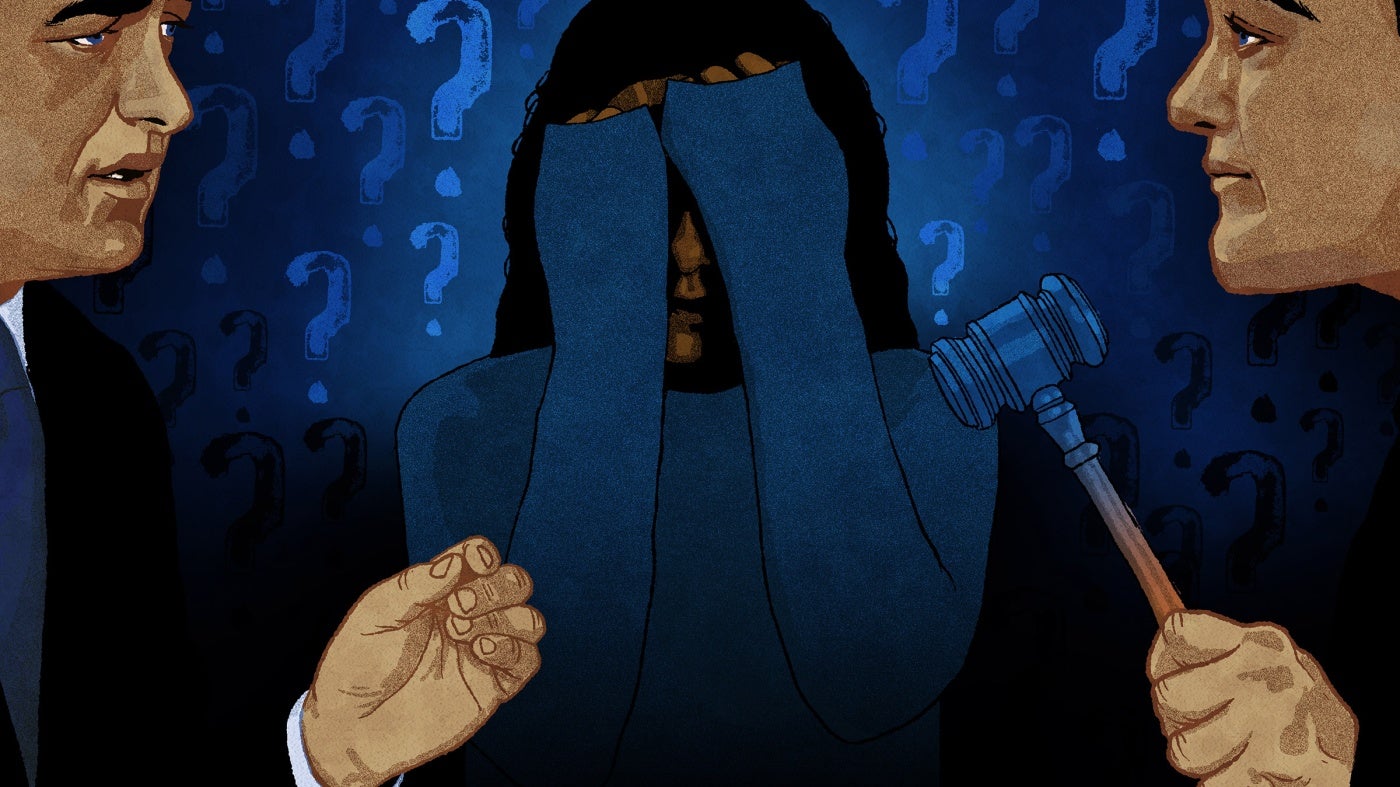How do young people with abusive or absent parents get help? By seeking a judicial waiver, convincing a judge they are “mature” enough to make a decision about abortion through a potentially traumatizing and arbitrary court process called “judicial bypass.” Annie Filkowski, policy director for the Florida Alliance of Planned Parenthood Affiliates, worked closely with Human Rights Watch on our new report that shows how Florida judges too often deny young people abortion care. Filkowski spoke with Amy Braunschweiger about some judges’ ridiculous reasons for denying young people abortions, and her fears over Florida’s next legislative session.
It's two and a half years since Florida made its law more stringent, changing it to require parental consent for an abortion as opposed to only parental notification. What has this looked like on the ground?
The courts were unprepared for this law. Before it went into effect, a study showed that only 11 of Florida’s 67 courts were knowledgeable about the judicial bypass process.
Because of my work, I was intimately aware of the statute, which went into effect during the pandemic. I became a go-to for attorneys, advocates, patients, judicial assistants, and abortion providers who were unclear on the changes to the law.
To get a judicial bypass, young people needed to petition the circuit court where they lived. But every clerk of court – a court’s general office – had different answers. With some courts you’d go to the juvenile delinquency courts. With others it was the family courts. So, the Floridians for Reproductive Freedom coalition started tracking all 67 clerks of court and their processes.
At the time, schools and court houses were shut [because of the pandemic]. Young people came into our health centers after going to their court house in an an attempt to file their petition, but the courts were giving them bad information. One young person was told by a court security guard that she could only enter if she was a domestic violence survivor. That was not true. When she said she was there to get permission to get an abortion, the security guard wouldn’t let her in. So she came to Planned Parenthood and explained what happened, and I called the clerk of courts to remind them of the Florida Supreme Court’s administrative order stating that these were essential hearings.
Numerous judges were granting waivers on outdated forms that didn’t mention the new consent requirement. I had to really push some judges and their staff to get them to update their forms to be in line with Florida statute.
Today, there’s better information out there about judicial bypass because of work done by the Floridians for Reproductive Freedom coalition. Also, Planned Parenthood’s patient navigator program has staff that are trained to assist young people navigating this process.
But now we’re seeing more egregious denials by judges.
Do you have any examples?
The most egregious example is that of Judge Jared Smith of Hillsborough County, who denied a young person’s request for an abortion because of her grades. He was voted out of office shortly thereafter, and the campaign to oust him centered on that ruling. After he was voted out, Florida’s governor, Ron DeSantis, appointed him to a newly created appeals court.
The young person in that case appealed, and the three-judge appeals court ruled in her favor. But Judge John Stargel dissented and cited the young person’s grammar as part of the reason he thought she should be blocked again from getting an abortion. His wife, Kelli Stargel, is the Florida state senator who sponsored the 15-week abortion ban and the parental consent bill.
Do the young people have attorneys?
By law, young people have a right to a free, court-appointed attorney. A well-informed and nonstigmatizing attorney can make a hell of a difference for your case. But some court-appointed attorneys can be unhelpful. I was put in touch with a young person after they were denied a judicial bypass. I asked what the court-appointed attorney suggested they do next, hoping the attorney would lead them through the appeal process. The young person said they didn’t even know they had an attorney until the case was over. The attorney didn’t say a word the entire time.
Also, I have seen uninformed court staff tell young people they didn’t need to check the box on the initial petition to get a court-appointed attorney. This bad information resulted in a young person representing themselves in court without any support.
Some court-appointed attorneys are hostile. In a blog post, a young person who went through judicial bypass in Florida wrote about how their court-appointed attorney, who makes $400 for each of these cases, said something along the lines of “you’re lucky I showed up today, my wife doesn’t believe in abortion and didn’t want me to come to this.”
How do young people find the bypass procedure?
Intimidating and traumatizing. They have to find the means to get to court, which typically has the same hours of operation as their school. Then, they are forced to disclose the most intimate details of their lives to perfect strangers – mostly old white men – in hopes that they will grant them their bodily autonomy. Most young people who are pregnant do involve at least one parent. For those who don’t, it’s often because of abuse, neglect, or abandonment. Some people have parents who would consent, but because of their immigration status they’re fearful of the ID and notary requirements.
One young person who was nearly 18 needed help getting a judicial bypass after suddenly finding themselves in foster care due to the tragic death of their only parent. Because young people in foster care have no option but to go to court for approval, this young person had to experience another major level of trauma by going to court for permission.
The new report talks about the county-by-county discrepancies in approvals. What does this look like?
From the data, we could see that Hillsborough County, where Tampa is, had a 50 percent denial rate in 2021. But some counties approved every petition. Your zip code shouldn’t determine your ability to control your body.
What’s it like working in Florida since the Supreme Court struck down constitutional abortion protections?
If you come to one of our Tallahassee or Jacksonville health centers, close to Florida’s northern border, you’ll see license plates from all over the Southeast. Our patient volume has quadrupled. We’ve extended hours and days of operation to meet the need. Health center staff have shared tragic stories in the wake of Roe v. Wade being overturned. Florida’s state government put up numerous barriers to accessing care around the same time. Florida’s ban on abortion after 15 weeks of pregnancy went into effect in July, right after Roe was overturned. And a new mandatory 24-hour forced delay period went into effect in April, requiring patients to make two trips to the clinic. Providers even had to send child incest survivors out of state for care.
Florida has a conservative state government. What do you think will happen to abortion in the state’s next legislative session?
We will likely see multiple bills that will restrict access to reproductive and sexual health care. We can expect anything from a 12-week abortion ban to a total abortion ban, which the governor has said he’d support. I expect an attack on sexual health education, which is already poor in Florida. I also expect restrictions on medication abortion and further attacks on our lesbian, gay, bisexual, transgender, queer, intersex, asexual, and more (LGBTQIA+) community, including the ability to access transgender health care.
The governor has twice vetoed government funding for long-acting, reversible contraception, like IUDs and birth control implants – a plan that had bi-partisan support – because anti-abortion groups liken birth control to abortion. So Florida is defunding birth control, restricting access to sexual health education in classrooms, and banning abortion.
Anything else to add?
How brutal it is for young people in Florida right now. Whether you’re a young person who has an unintended pregnancy, or who is LGBTQIA+ or comes from an LGBTQIA+ family, not only does the state not support you, it is actively hostile toward you.
But Planned Parenthood is here, and we believe in care no matter what, and we’ll continue to advocate for young people to have the power to make decisions about their bodies, including whether or not to be pregnant.
If you are under 18 and need information about accessing abortion care in Florida, visit:
http://teenabortionflorida.com/
https://www.flaccessnetwork.org/
https://judicialbypasswiki.ifwhenhow.org/
*This interview has been edited and condensed.





